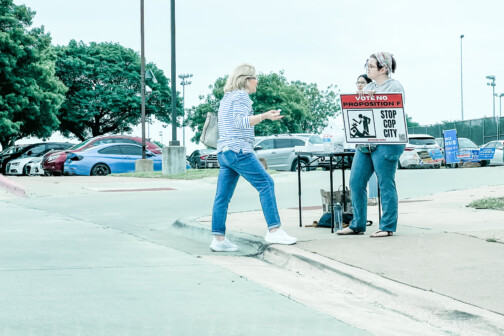“Your Honor, the defendant begs the court to recognize that although his car was parked in a fire lane, he spoke to the security guard on duty and was given permission to leave the vehicle there a few minutes. In view of this, I ask the court to dismiss the case against him,” said the sixteen-year-old attorney. The case was dismissed.
The incident above occurred in Arlington Teen Court, where the prosecuting and defense counsels, the clerk, the bailiff, the jury, and the defendants are all teenagers. Only the judge is an adult.
“Teen Court helps teenagers better understand the judicial system and to recognize the necessity for taking responsibility for their own actions,” says Michele Rothschild, adult Teen Court coordinator.
Teen Court, which now hears only traffic cases, is a joint project of the city of Arlington and the Arlington Boys Club. A chief judge and three alternates share the responsibilities of the court on a voluntary basis. Bonnie Cade, a practicing attorney, is currently the chief judge.
When teenage drivers are issued tickets, the case is filed in municipal court. The offender and his parents are then told of his options. Just a few months ago, the result would have been a fine or a defensive driving course. Now the teenage offender has the additional option of having his case tried in Teen Court, before a jury of his peers.
Punishments for those found guilty range from five to sixty hours of community service time and include three to five jury service terms. Teens may at any time withdraw from the system and go through the “adult” courts, but Teen Court has other attractions besides the peer involvement: no fines or court costs, and no permanent record for those found guilty.
The teenage defendants appear to be taking their sentencing seriously. Only an occasional phone call has been necessary to act as a reminder of their civic duties. The result: more than 300 hours of community service by teenagers.
The opportunity for the teens to take their cases to Teen Court only became available this past July. By next spring, the court may be hearing Class C misdemeanor cases.
No statistics are yet available on long-range results, but the responsibility-building program appears to be gaining in popularity with teens and proving to be an effective judicial tool.
Get our weekly recap
Brings new meaning to the phrase Sunday Funday. No spam, ever.
Related Articles

Local News
Dallas Voters Approve a $1.25 Billion Bond
Dallas voters overwhelmingly approved all 10 propositions in the city's $1.25 billion bond package. But there's a gut check coming.

Basketball
What We Saw, What It Felt Like: Mavs-Clippers, Game 6
At long last, Dallas defeated L.A.
By Iztok Franko and Mike Piellucci

Hockey
What We Saw, What It Felt Like: Stars-Golden Knights, Game 6
Dallas came up on the wrong end of the smallest margins.
By Sean Shapiro and David Castillo


